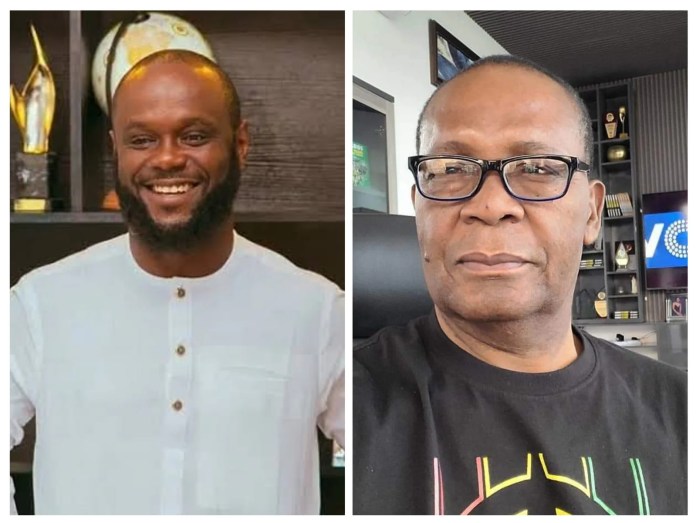As the first son of President Bola Ahmed Tinubu, Seyi Tinubu has always been in the public eye, subject to both admiration and scrutiny. In recent times, there have been growing calls for Seyi to consider running for the Lagos State governorship in 2027. While some political figures, like Joe Igbokwe, have dismissed these calls as a “needless distraction,” others believe that Seyi’s potential to lead the state is both timely and essential. These voices are not only looking at his lineage but at the man himself, his achievements, and the transformative work he has done for society.
Despite his youth, Seyi has already proven himself as an influential figure, capable of driving impactful initiatives. He is known for his philanthropy, which focuses on health, education, and environmental sustainability. Seyi’s initiative, the Drug Banks for Indigent Patients in Obstetrics & Gynecology and Pediatric Pharmacy Intervention program, has provided healthcare support to over 600,000 Nigerians monthly, contributing to a significant reduction in maternal and infant mortality rates. This program alone demonstrates his commitment to improving the lives of ordinary Nigerians, especially the most vulnerable members of society.
Moreover, his work is not confined to charity; it is deeply intertwined with sustainable development. Seyi has been a prominent advocate for clean water solutions, delivering thousands of potable water sources to communities across Nigeria. His initiative has reached many underserved areas, showcasing his understanding of real-world issues and his ability to enact tangible solutions. These efforts underline Seyi’s readiness to assume leadership in a complex, resource-demanding environment like Lagos.
While critics argue that Lagos’ governorship requires the experience and maturity that they feel Seyi lacks, they overlook the unique qualities he brings to the table. The governance of Lagos, one of Africa’s most vibrant and rapidly developing megacities, demands fresh thinking, innovation, and a forward-looking approach. Nigerians are growing increasingly weary of leaders who rely on outdated strategies. The world is evolving, and so should its leadership. In this context, Seyi represents the future—a new generation of leaders who are not bound by the constraints of traditional politics.
The younger generation, especially in cities like Lagos, is eager for leadership that understands their concerns and reflects their values. This group is tired of being led by the same old figures who treat the youth as an afterthought. Seyi’s vision for Lagos isn’t just about continuing his father’s legacy; it’s about forging a new path—one that involves collaboration, youth empowerment, and fostering opportunities for innovation. His understanding of technology, coupled with his experience in the private sector, gives him an edge in implementing cutting-edge solutions to the city’s challenges.
One of the most significant shifts in global politics has been the rise of youth leaders who challenge the status quo. Seyi’s candidacy for Lagos governorship is not about nepotism but about providing the right leadership at the right time. The idea of a “boy” leading Lagos may resonate with some as a challenge to the traditional order, but it is important to recognize that today’s youth do not see this as a hindrance—they see it as an opportunity for growth. They want a leader who understands their aspirations, frustrations, and the unique challenges they face in the modern world.
The criticisms about Seyi’s readiness often stem from a lack of understanding about what Lagos truly needs: a fresh perspective. Lagos is a cosmopolitan hub, brimming with young, talented individuals who are ready to shape the future. These young people are not looking for leaders who simply repeat the mistakes of the past; they are looking for someone who understands the pulse of the city and can provide innovative solutions to its challenges.
Seyi’s work extends far beyond his philanthropic ventures. As a strategic thinker, he has built strong relationships with business leaders, policymakers, and activists, all aimed at creating lasting change. His leadership in various initiatives has demonstrated his ability to bring people together and make meaningful progress in addressing complex societal issues. His efforts to support youth development, education, and healthcare have had a ripple effect, reaching thousands of lives and creating opportunities for many to thrive.
It is also worth noting that Seyi’s position in the public eye has given him invaluable experience in leadership, communication, and strategy. These are the very skills that will allow him to navigate the challenges of governing a city as large and diverse as Lagos. Unlike many who assume leadership based solely on age or seniority, Seyi’s experiences have shaped him into a leader who is not only capable of governing but is also eager to make a lasting impact.
Seyi Tinubu is not just the son of President Bola Tinubu, he is a man in his own right, with a vision for the future that is grounded in real-world experience, empathy, and innovation. The call for him to run for Lagos governorship is not a passing distraction but a necessary step toward a brighter, more progressive future for the state. Nigerians, especially the younger generation, are eager for a new kind of leadership—one that is dynamic, visionary, and deeply committed to the betterment of society.
Seyi Tinubu represents this new wave of leadership, and he is poised to be the best next leader for Lagos. As he continues to shape his path, it is clear that his ambition is not fueled by a desire for power but by a genuine desire to make a difference. For those who believe that a “boy” is unfit to govern, it is time to recognize that Seyi is not just a boy—he is a leader, ready to shape the future of Lagos and Nigeria as a whole.






